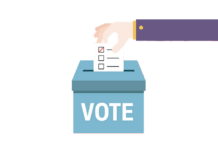“it was quickly became apparent that what has been presented as “truth” has often been contingent on the political needs of the time”
Following a panel held the week before examining the impacts of the Trump administration, UW profs convened once more March 16 to discuss American politics. This time around, the panel met in the Kitchener Public Library to discuss the topic of the growth of lies and “fake news” in political discourse.
Dr. David DeVidi from the philosophy department started the event by exploring whether politicians have ever actually told the truth. Through numerous historical and relatively recent examples such as Colin Powell’s factually deficient presentation to the UN on Iraq’s “weapons of mass destruction” it was quickly became apparent that what has been presented as “truth” has often been contingent on the political needs of the time.
DeVidi argued that there is something different now: the need for venues to appear balanced when presenting the news, has led to the inclusion of not-so-trustworthy news sources such as Fox News being presented as “legitimate.” Moreover, the need for journalists to present the “Big News Story” has led to venues succumbing to pack mentality, lest they be accused of not having the feel of the story of the day. Simply put, reporting on a different story from other outlets is a “career hazard if you’re a journalist,” according to DeVidi.
“it isn’t so much a question of whether the information is correct, but rather what work it accomplishes in the world”
Then came speech communication associate professor Robert Danisch, who gave a TED Talk-style overview of his general belief that all news is fake news. For Danisch, it isn’t so much a question of whether the information is correct, but rather what work it accomplishes in the world. Danisch briefly covered practices of division and explained how through a set of rhetorical practices, Donald Trump is consciously unable to bridge divisions, constantly leading to an “us vs. them” rhetoric.
Political science assistant professor Anna Esselment presented a slightly more positive take on the newness of “fake news.” Like her, Esselment agreed that fake news isn’t new, but the lack of evidence to truly understand it makes it new from an academic perspective. Also new are the characters in politics. Esselment compared the 2008 U.S. presidential election between Barack Obama and John McCain. The deluge of fake and offensive remarks suggesting Obama was “an Arab” were repeatedly denied by McCain who found it alarming … Then came Trump. Esselment noted that with Trump, it isn’t just exaggerations or bending the truth but outright lies told with confidence. Trump’s reliance on Twitter over paid advertisements further demonstrates that social media is leading what’s going on traditional news sources. Furthermore, the kindergarten-taught habit of sharing has created an economic incentive for content to be made just to be shared.
“we as members of the public need to be aware that the incentives to create fake news will only increase”
Esselment concluded that fake news didn’t lead large swaths of people to vote for Donald Trump or Hilary Clinton, but we as members of the public need to be aware that the incentives to create fake news will only increase. Crucially, members of academia need to stay on top of investigating how it will continue.
The Q&A that took place afterwards showed that members of the audience were hoping that the event would provide some optimism for the future of public discourse. They got two answers. DeVidi and Esselment were optimistic. DeVidi remarked that there has been social progress in the last 30 years and urged hope that the current situation is a mere “blip,” and that Trump and others had a “longer way to go to break things.”
Danisch jokingly commented that he wanted to start drinking whatever DeVidi was. For Danisch, who threw away his previous case studies and examples to be used in his next book because they “weren’t grotesque enough” to compare to Trump, scepticism came as no surprise.
What did bind all the speakers was a recognition that the privileges we have must no longer be taken for granted, for they can just as easily be “fake news-ed” away.





























